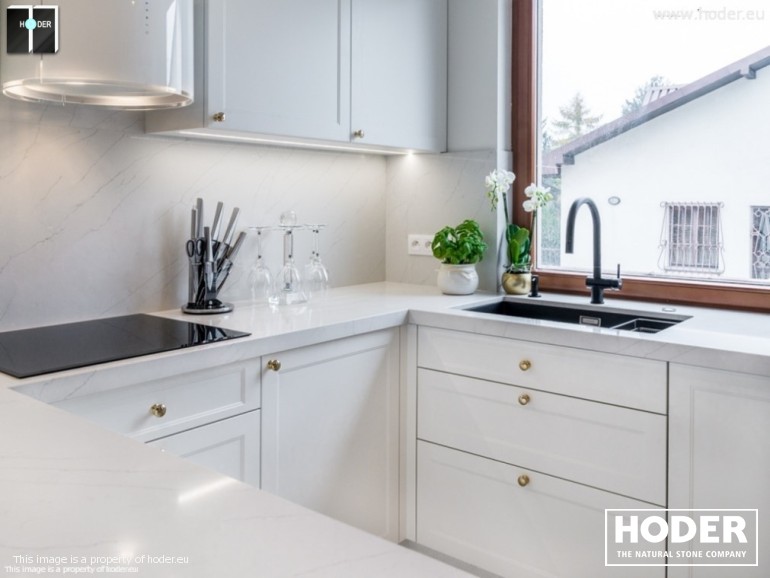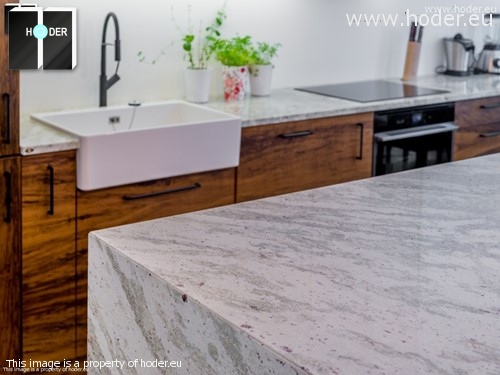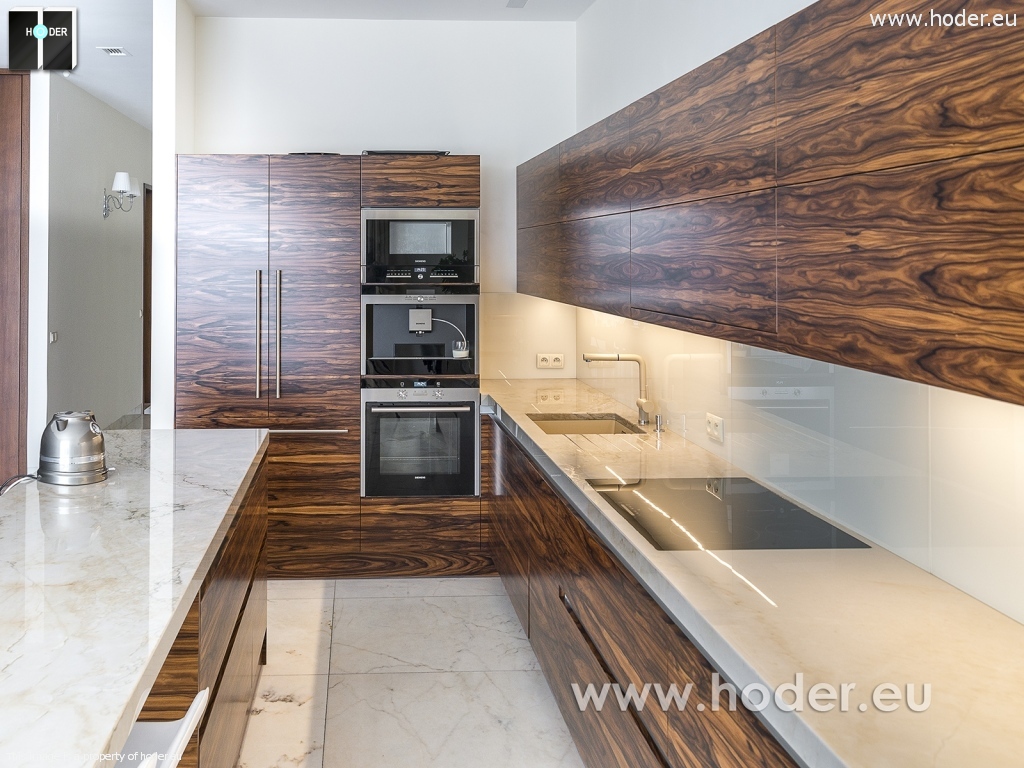HOW TO RENOVATE A KITCHEN COUNTERTOP?

WE RESPECT YOUR PRIVACY
We use cookies to ensure the proper functioning of the website, and if you agree, also for marketing and advertising purposes. We use cookies in accordance with our Privacy Policy.
You can specify the conditions for storing or accessing cookies in your browser. The administrator of your data is Hoder Sp.k. More about more about storing cookies

The kitchen countertop is a pivotal component in any kitchen. Used for food preparation and as a surface for dishes, a well-designed countertop can also double as a dining area. However, kitchen conditions can be challenging. Countertops endure stress, high temperatures, and moisture, leading to potential wear over time. The extent of this wear largely depends on the countertop material. So, how can you restore its original charm?
CAN ANY KITCHEN COUNTERTOP BE RENOVATED?
The material of the countertop is crucial when considering renovation. Common materials include:
• Wood
• Metal
• Stone
• Conglomerate
• Tiles
While most countertops can be refurbished, it's essential to evaluate the cost-effectiveness of such an endeavor. For instance, laminate countertops, though popular due to their affordability and versatility, might not be worth renovating. If damaged, it's often more economical to replace them entirely. Temporary fixes like repainting, applying a special foil, or tiling might not ensure long-term durability. For a more lasting solution, stone or quartz conglomerate is recommended.
HOW TO REFRESH A KITCHEN COUNTERTOP?
 The renovation process varies based on the countertop material:
The renovation process varies based on the countertop material:
• Wood: Begin by sanding the surface. Use a grinder and sandpaper for this. Once the old coating is removed, apply oil or varnish. Remember, wood requires regular maintenance—always wipe it dry and clean off any residues.
• Stone: Natural stone countertops like granite or quartz are durable and ideal for kitchens. If they exhibit noticeable flaws, sanding and patching with specialized tools or manufacturer consultation can restore them.
• Conglomerate: Also termed synthetic stone, conglomerates consist of ground natural stone (like granite or quartz sand) mixed with resin. Special techniques are required for their renovation.

While renovation is feasible for most countertops, evaluate the extent of damage and type of stains before proceeding. Certain damages, like severe moisture in wooden or laminated countertops, are challenging to address. At times, renovating might not be cost-effective, especially for lower-end products. Prioritizing proper maintenance and regular cleaning will help maintain the countertop's aesthetics and utility.
In conclusion, for longevity and aesthetics, natural stone, granite, or quartz conglomerate countertops are preferable. Regular impregnation ensures they remain functional and visually appealing for years.